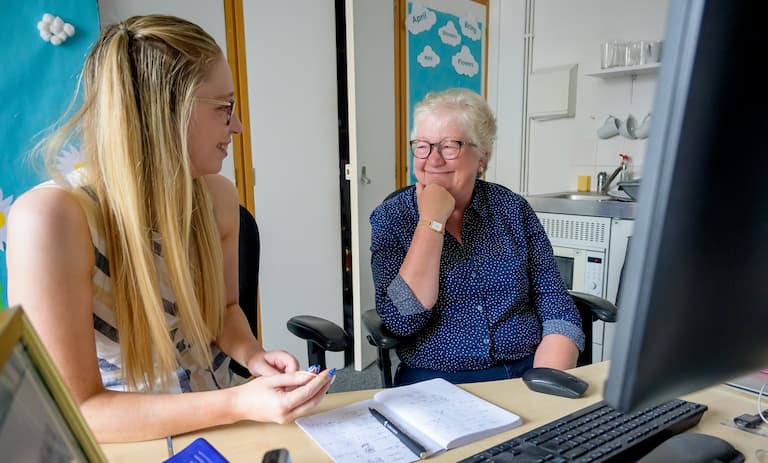North Lincolnshire goes purple for Pancreatic Cancer Awareness Month
Buildings across North Lincolnshire are being lit up purple throughout the month of November to raise awareness of pancreatic cancer.
North Lincolnshire Council is supporting Pancreatic Cancer Awareness Month by lighting up some of its buildings including:
- Church Square House in Scunthorpe
- Scunthorpe Central
- 20-21 Visual Arts Centre
- Engineering UTC Northern Lincolnshire
British Steel is also lighting up some of its offices purple to help increase the profile of the disease.
During the month, people will be encouraged to talk about pancreatic cancer and raise awareness of the symptoms.
Almost 10,000 people are diagnosed with pancreatic cancer in the UK each year. Sadly, less than seven per cent of those diagnosed with pancreatic cancer survive five years or more. Despite being the UK’s fifth biggest cancer killer, the disease receives less than three per cent of UK cancer research funding.
Pancreatic cancer affects men and women. In North Lincolnshire, each year on average 17 men and 13 women are diagnosed with pancreatic cancer, and around 13 men and 12 women die each year.
There are usually no symptoms in the early stages of pancreatic cancer making it hard to diagnose. An estimated 37 per cent of pancreatic cancers in the UK are linked to lifestyle factors including smoking (29 per cent) and being overweight or obese (12 per cent).
The most common symptoms are:
- Pain in the stomach or back
- Jaundice
- Unexpected weight loss
- New onset diabetes not associated with weight gain
- Pain on eating
- Change in bowel habit – pale and smelly stools
If you have any of these symptoms, book an appointment with your GP as soon as possible to get checked out.
Pancreatic cancer is currently very difficult to diagnose. Upon diagnosis, most sufferers find they have untreatable terminal cancer with an average life expectancy of between three to six months. Surgery is currently the only cure, but only 10 per cent are diagnosed in time for this to be an option. However, survival is possible if it is caught in time for surgery. People need to be more aware of the signs and symptoms to be able to present them to their GP and get referred for appropriate tests.
Smoking is the most important avoidable risk factor for pancreatic cancer. Stopping smoking can reduce your risk of pancreatic cancer. Around five to 10 years after stopping, your risk may return to what it would be if you had never smoked.
You may also reduce your risk of pancreatic cancer by getting to and maintaining a healthy weight. If you need to lose weight, aim for a slow, steady weight loss – one to two pounds a week. Combine daily exercise with a diet rich in vegetables, fruit and whole grains with smaller portions to help you lose weight.
A diet full of colourful fruits and vegetables and whole grains may help reduce your risk of other cancers too.
More information about Pancreatic Cancer Awareness Month can be found on the Pancreatic Cancer Action website. People can visit the Purple Lights website to find out how to take part of email info@purplelights.org.uk.
World Pancreatic Cancer Day 2019 is Thursday 21 November and gives people the opportunity to unite as part of the Purple Lights for Pancreatic Cancer campaign and show support for people with pancreatic cancer, remember those who have sadly died of the disease whilst also raising awareness.
Maggie Watts who lost her husband to pancreatic cancer a few years ago and is the regional representative for Pancreatic Cancer Action, said:
“I’m very grateful to North Lincolnshire Council for, once again, raising much needed awareness of pancreatic cancer during the awareness month. I know that the charities and many people affected by pancreatic cancer share my gratitude because, without support such as this, it’s very difficult to raise the profile of the disease and this is something we absolutely must do if we are to see any hope of change for future pancreatic cancer patients.”
Cllr Ralph Ogg, cabinet member for adults and health, said:
“Pancreatic cancer can be difficult to diagnose, which makes it even more important for people to be aware of the symptoms. Throughout the month we aim to raise awareness to help improve survival rates. It is vital that people don’t ignore the symptoms if they have any and book an appointment with their GP.
“Once again, this year we will be lighting up a number of our buildings purple to show our support and encourage people to get talking.”
David Williamson (aged 55) from Brigg was officially diagnosed with pancreatic cancer in March 2015. This is his story; Pancreatic Cancer Awareness Month case study [PDF, 30Kb].





